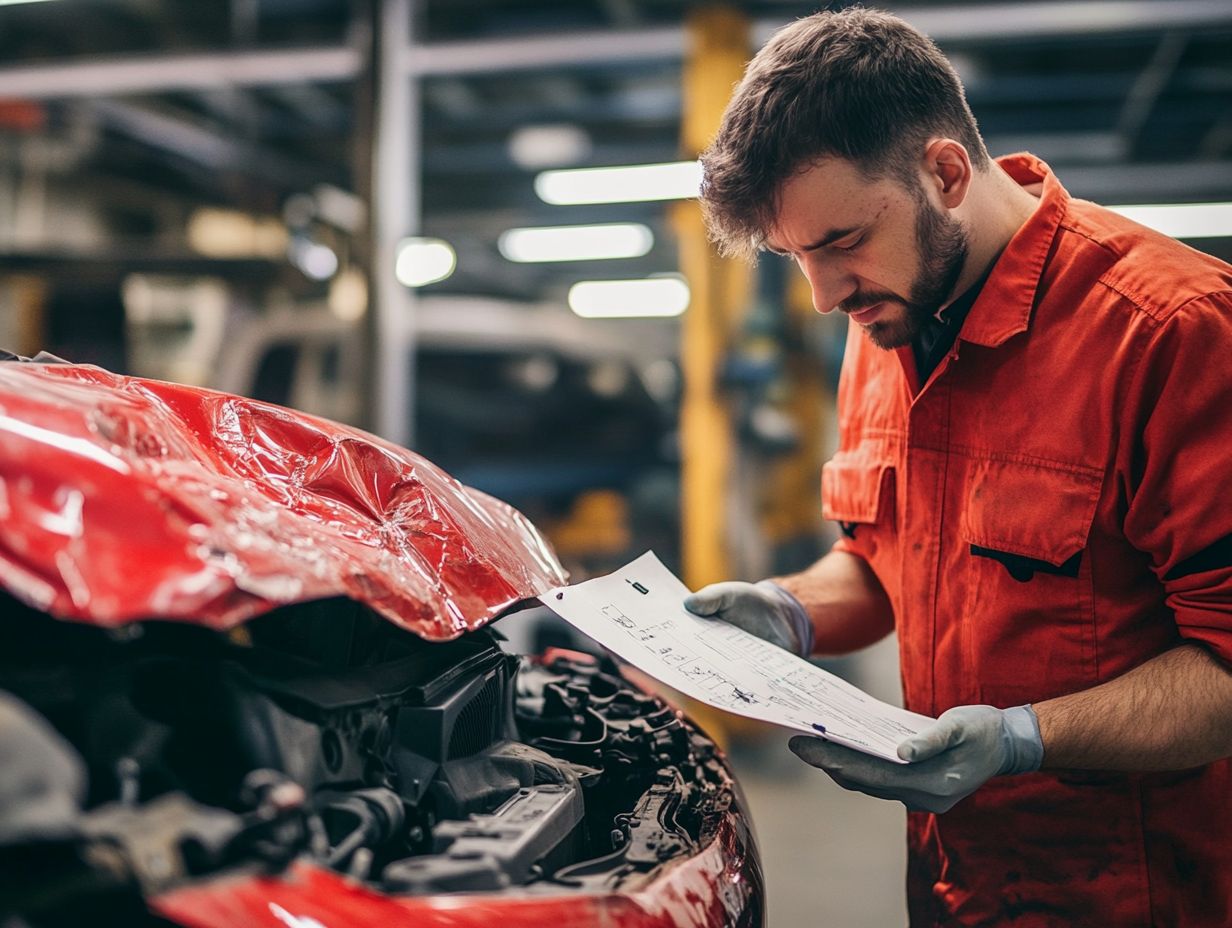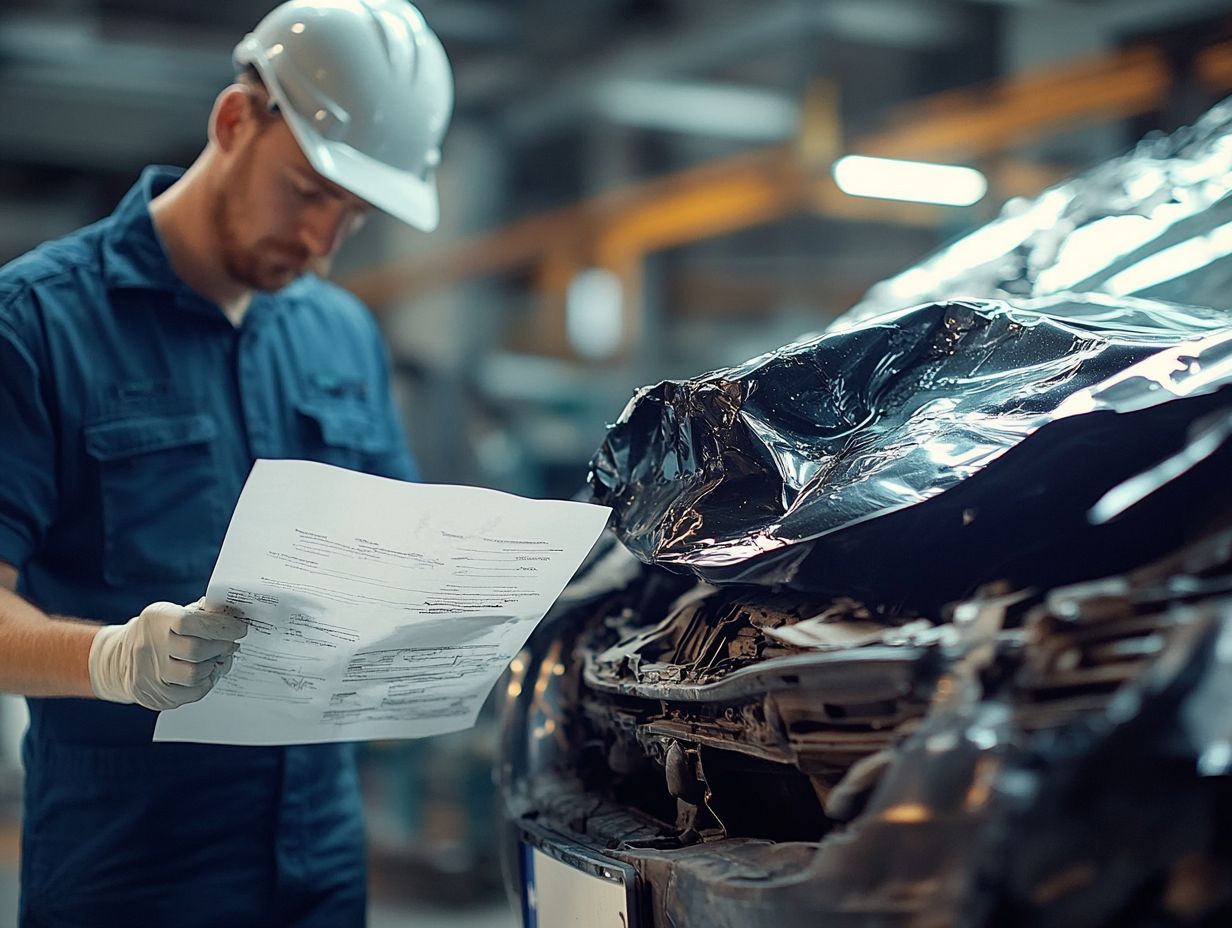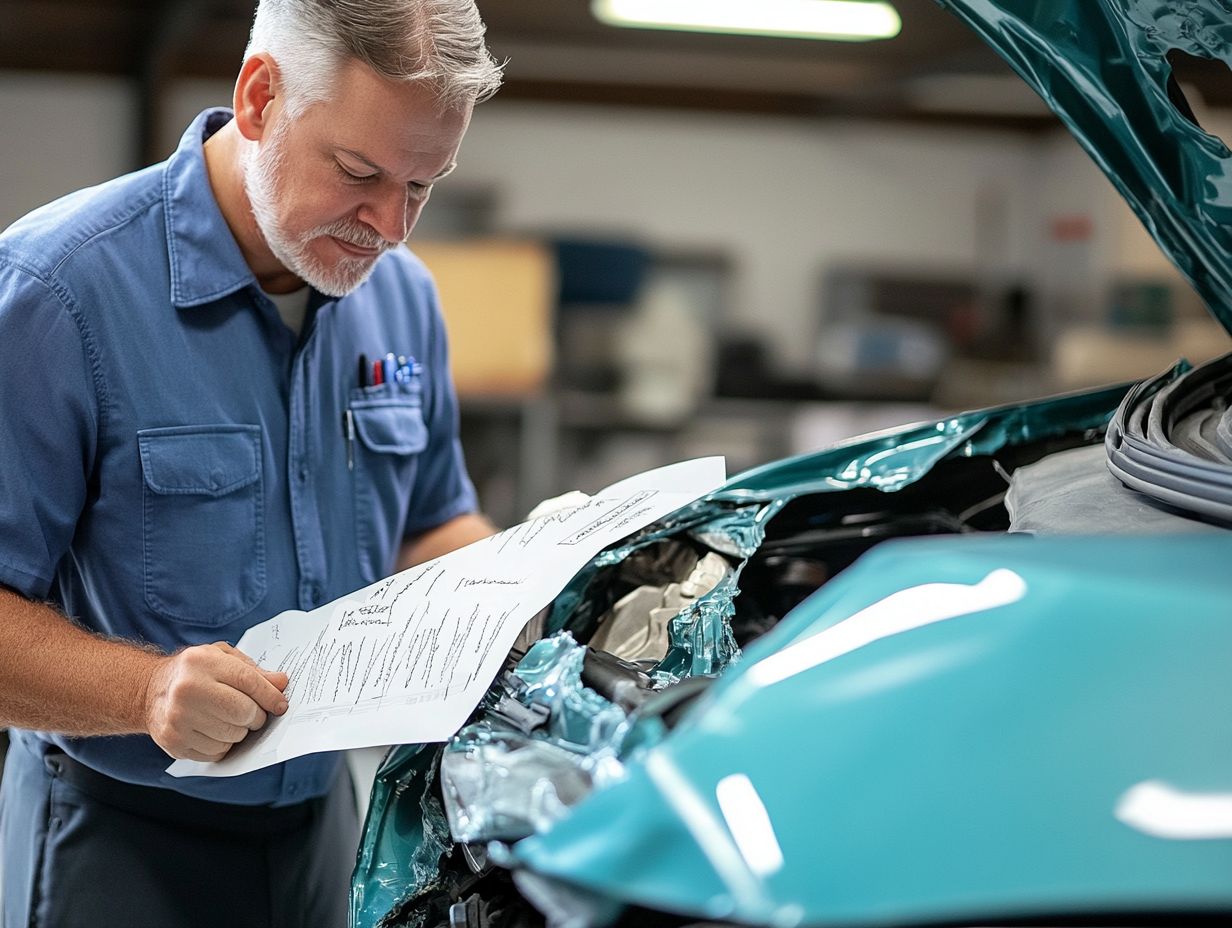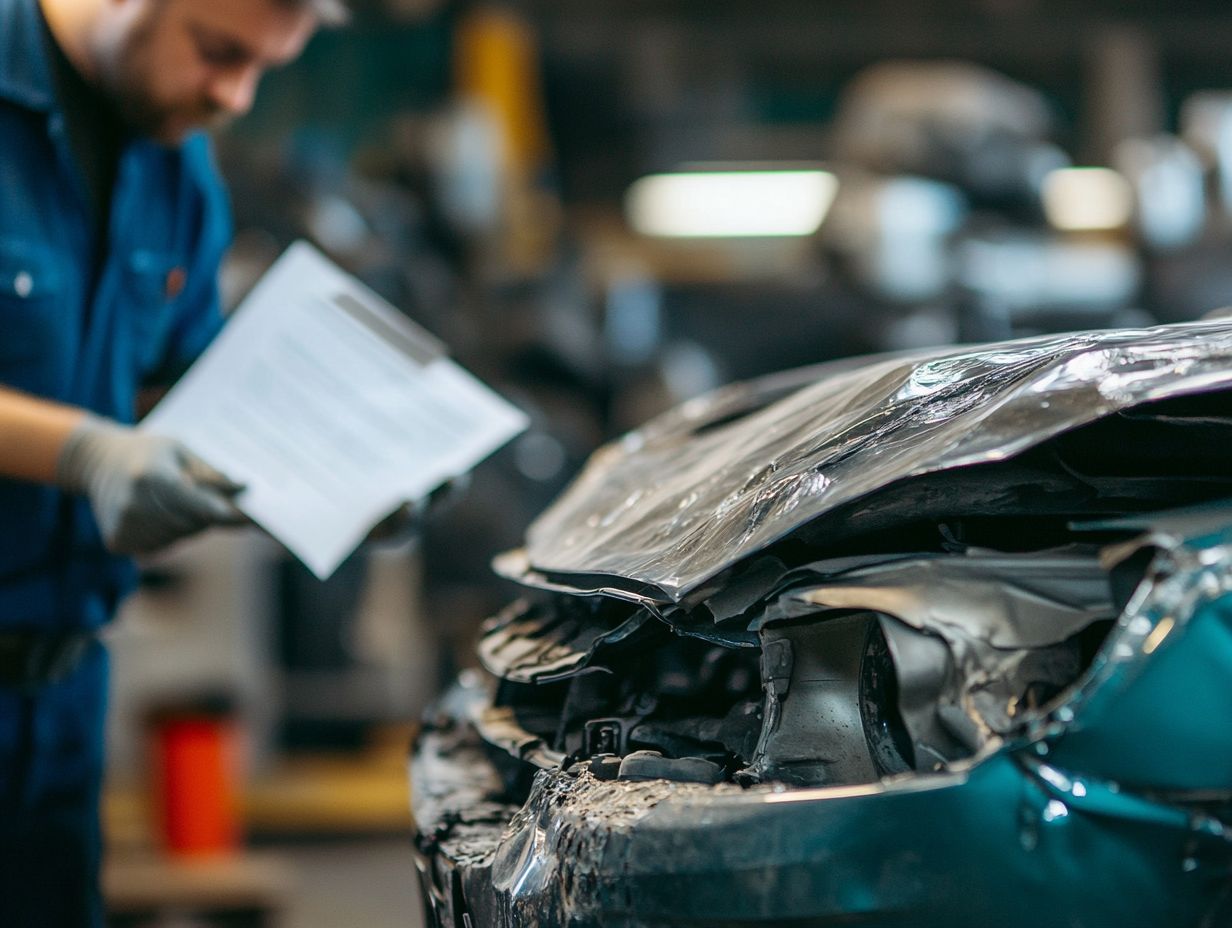The Impact of Accidents on Your Warranty
Understanding warranty coverage can be a game changer in protecting your investments. Whether you’re dealing with a brand-new appliance or a cherished vehicle, knowing what a warranty entails and the types available is essential.
What happens if an accident occurs? This article breaks down how accidents can affect your warranty, highlights important exceptions, and outlines crucial steps to take afterward. It also guides you through the complexities of warranty denials and explores alternative repair options. Read on to equip yourself with the knowledge needed to safeguard your purchases!
Contents
- Key Takeaways:
- Understanding Warranty Coverage
- Accidents and Warranty Coverage
- Steps to Take After an Accident
- Dealing with Warranty Denials
- Frequently Asked Questions
- What is the impact of accidents on my warranty?
- What types of accidents can affect my warranty?
- Will my warranty cover accidental damage?
- What should I do if my product is damaged in an accident?
- Can I still use my warranty if my product has been in an accident?
- How can I avoid voiding my warranty due to an accident?
Key Takeaways:

- Accidents can void your warranty.
- Understand warranty types and exceptions before making a purchase.
- After an accident, report it to the manufacturer and document the damage to enhance your chance of a successful warranty claim.
Understanding Warranty Coverage
Understanding warranty coverage is vital for every car owner. It acts as a safety net against unforeseen repair expenses from mechanical issues or vehicle damage. A comprehensive warranty like a manufacturer warranty, powertrain warranty, or bumper-to-bumper warranty can significantly reduce your costs over its duration.
It’s crucial to read the fine print of the warranty terms and conditions. This will define the extent of your protections and compliance. By doing so, you’ll empower yourself to make informed decisions about your vehicle’s maintenance and repair needs.
What is a Warranty?
A warranty is essentially a promise or guarantee from the manufacturer or auto dealer, designed to cover specific repairs and services over a set period. This promise shields you from unexpected repair costs that can catch anyone off guard.
This legal commitment typically extends to various vehicle repairs, helping protect you from the financial burdens that arise from mechanical issues or parts failures. Generally, a warranty covers critical components like the engine, transmission, and electrical systems, providing protection against a range of problems that might occur during normal use.
Understanding the implications of a warranty is crucial for you as a consumer. It outlines the terms for how repairs are handled, including any limitations and exclusions, fostering a clearer understanding of the relationship between you and the dealer.
Types of Warranties
As a car owner, you’re presented with various warranty options, each tailored to offer different levels of coverage and protection. These include the manufacturer warranty, powertrain warranty, and bumper-to-bumper warranty.
Understanding the differences between these warranties is essential. They play a crucial role in determining your financial protection and influence your repair choices and associated costs. For example, the manufacturer warranty typically covers most defects in workmanship or materials for a defined period. In contrast, the powertrain warranty focuses on major parts that make your car move, like the engine and transmission, ensuring significant repairs remain financially manageable.
The bumper-to-bumper warranty covers nearly all vehicle parts, granting you peace of mind, though it might have certain limitations after a specific mileage or timeline. By reviewing these distinctions thoroughly, you can make decisions that align with your driving habits and long-term ownership aspirations.
Accidents and Warranty Coverage
Accidents can profoundly affect your warranty coverage. When vehicle damage occurs due to an accident, it may lead to the voiding of your warranty, complicate the claims process, and create potential disputes between your car insurance and warranty terms.
This situation can cause significant confusion for car owners like you who are seeking repairs. Be proactive in understanding your warranty and how accidents impact it.
For more clarity, check your warranty details and contact your dealer if you have any questions!
How Accidents Can Affect Your Warranty

Accidents create complex issues for warranty coverage. Collision repairs may void your warranty if damage is seen as abuse of the vehicle or improper repairs.
For instance, if your vehicle sustains significant damage from a collision and you opt for repairs by an unapproved mechanic, the manufacturer may contest any warranty claims related to those repairs.
The introduction of aftermarket parts parts not made by the vehicle’s original manufacturer after an accident adds another layer of complexity. If these parts lead to further issues, your warranty could be rendered void.
Take, for example, a scenario where your vehicle is involved in a flood. If you attempt to claim warranty coverage for electrical failures stemming from water damage, your claim is likely to be denied. Warranty terms typically exclude coverage for flood-related incidents.
Thus, grasping the intricacies of warranty rules is essential for any vehicle owner.
Exceptions to Warranty Coverage
While warranties provide substantial protections, there are notable exceptions that can leave you feeling exposed as a vehicle owner. Situations involving abuse of the vehicle, improper fluid usage, or damage from natural disasters think earthquakes or tornadoes are usually not covered.
Know these exceptions well! They could make a huge difference in your claims when you need help the most. For example, if you neglect the manufacturer s recommended maintenance schedule, you might find your claims denied due to perceived neglect.
Using fluids that aren t recommended can void your coverage, highlighting just how crucial compliance is. Your maintenance records will become essential in these scenarios, acting as vital proof that you ve adhered to warranty conditions and protected your investment.
Without thorough documentation, you may find the path to a successful warranty claim obstructed, potentially leaving you with unexpected repair costs.
Steps to Take After an Accident
After an accident, understanding the right steps to take is essential for preserving the integrity of your warranty and ensuring successful claims can be filed. Begin by promptly reporting the accident to the manufacturer and meticulously documenting the damage.
This proactive approach will safeguard your interests and streamline the claims process.
Reporting the Accident to the Manufacturer
Reporting the accident to the manufacturer promptly is crucial. It establishes a clear record of the incident, which can significantly impact your warranty claims and the vehicle’s overall history.
Gather all the necessary information immediately! This includes details of the incident, the extent of the damage, and any police reports, if applicable. Providing this information to the manufacturer not only facilitates the claims process but also ensures that your vehicle s warranty remains intact.
By maintaining an accurate and thorough vehicle history, you can mitigate potential disputes down the line. After all, any discrepancies could lead to warranty non-compliance. Keeping all your documentation organized and easily accessible is key to navigating the complexities of warranty claims with confidence.
Documenting the Damage
Accurate documentation of damage is essential following an accident. It serves as critical evidence for filing warranty claims and can significantly streamline the collision repair process.
To ensure thorough documentation, begin by capturing clear, detailed photographs of all affected areas from various angles. Close-up shots can effectively highlight specific issues, while wider angles offer necessary context.
Along with the images, it s crucial to maintain written records that detail the damage, including the date and time of the incident, the circumstances surrounding it, and any discussions with service providers regarding repairs. This organized evidence boosts your warranty claims and plays a pivotal role in tracking repair progress. It facilitates communication with repair shops, ensuring everyone is kept informed about the status of your vehicle s restoration.
Dealing with Warranty Denials

Navigating warranty denials can be quite the headache for car owners. It’s essential to fully understand the reasons behind the denial and the steps needed to appeal the claims process.
Exploring alternative options for repair assistance can help overcome these challenges.
Appealing a Denied Claim
When you encounter a denied warranty claim, understanding the appeal process is essential for you as a car owner. This knowledge empowers you to stand up for your rights and seek the warranted repair assistance you deserve!
Here are some steps to follow:
- Begin by carefully reviewing the warranty policy and paying close attention to any specific clauses that may relate to your denial.
- Gather all necessary documentation, such as invoices, repair estimates, and previous communications with the manufacturer. Clear and thorough documentation underscores your compliance and strengthens your appeal.
- Communicating effectively with the manufacturer is crucial. Whether you choose to reach out via email or phone, starting the conversation with a polite yet assertive tone can make all the difference in resolving the issue to your advantage.
Alternative Options for Repairs
If you face a warranty denial, consider exploring alternative options for repairs. This may include using reputable aftermarket parts or seeking help from certified collision repair professionals.
These options often save you money, especially if you’re facing hefty repair bills. Choosing aftermarket parts can save you a good amount of money, but it s important to weigh the considerations of quality and compatibility; not all parts will meet the same standards as those approved by the manufacturer.
Manufacturer-approved repairs generally ensure compatibility and reliability, though they might strain your budget.
It’s also essential to select technicians certified by the National Institute for Automotive Service Excellence (ASE) for any repair work. These professionals possess the skills and training necessary to handle a variety of repairs, ultimately safeguarding your vehicle’s long-term performance and keeping it running smoothly.
Frequently Asked Questions
What is the impact of accidents on my warranty?
Accidents can significantly impact your warranty, as they may result in voiding or limiting coverage for repairs or replacements related to the accident. Understanding the impact of aftermarket parts on warranty is crucial in these situations.
What types of accidents can affect my warranty?

Any accident that causes damage to your product, such as dropping it, water damage, or physical impact, can potentially affect your warranty coverage.
Will my warranty cover accidental damage?
Most warranties do not cover accidental damage, but some may offer additional coverage options for accidents for an extra fee.
What should I do if my product is damaged in an accident?
If your product is damaged in an accident, contact your warranty provider immediately to report the damage and determine if it is covered under your warranty.
Can I still use my warranty if my product has been in an accident?
It depends on the terms of your warranty. Some warranties may still provide coverage for non-accident related issues, while others may be voided entirely if an accident has occurred.
How can I avoid voiding my warranty due to an accident?
The best way to avoid voiding your warranty due to an accident is to handle your product with care and follow all recommended usage guidelines provided by the manufacturer.




